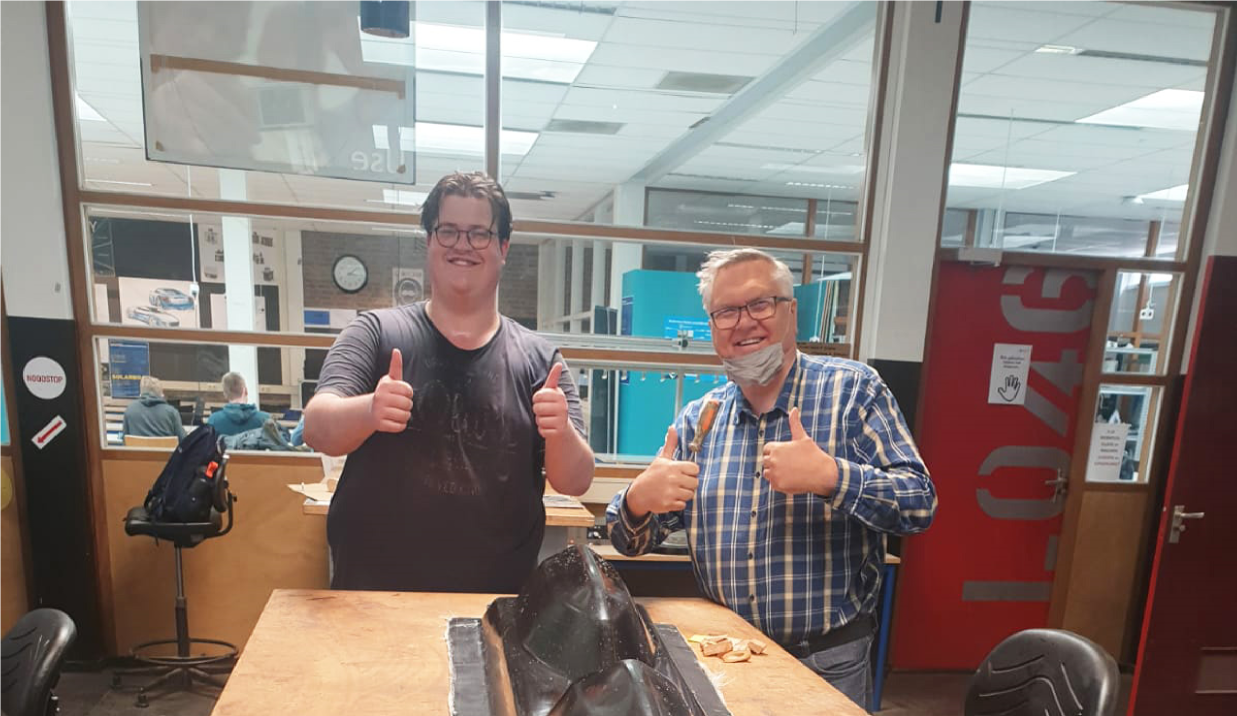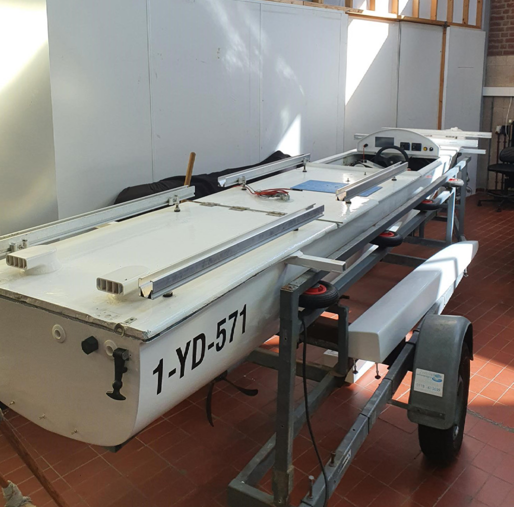
The engineers’ laboratory is a busy place every day. Students and researchers work on numerous projects in the space in the HZ building on Edisonweg in Vlissingen.
One project that immediately catches the eye is the sensor boat. You can’t miss it, because the black colossus is almost always on one of the workbenches. HZ students Engineering, ICT and Water Management and students from Scalda are involved. It is the second version of the sensor boat. The deck and hull are made of flax and biobased resin. Compared to the first one, the build quality has been greatly improved.
The researchers and students deliberately chose to give the sensor boat a black color. This makes the boat as inconspicuous as possible in nature, its intended field of work. The sensor boat will take measurements on the water, for example in the Westerschelde. Rijkswaterstaat regularly dredges these waterways to keep them passable. Measurements are taken during and after dredging so that the effects on the environment become clear. Sediment measurements are made by large ships, but this is expensive and not very sustainable. Another way is to measure via sensors on poles in the water. However, this keeps you tied to one location. The sensor boat is a good alternative for taking the measurements.
VLASVEZEL
Although it was not a hard requirement from the client Rijkswaterstaat, the HZ and Scalda chose to use as many bio-based materials as possible for the sensor boat. Willem Haak, a researcher in HZ’s Building with Nature lectorate, is clear about that choice. “The environmental impact is always less with biobased materials. No harmful substances are released during the production process and when the boat is at the end of its life cycle, we benefit from as many materials as possible being harmless to the environment.” Hook believes we owe it to our posterity and the world to take every opportunity. “Whatever you do, do it biobased.” Willem previously worked at the Biobased Building lectorate of the Centre of Expertise Biobased Economy. “The knowledge I gained there I brought to this project. It is great to be able to work with researchers from different disciplines. That certainly benefits the quality and is very instructive.” The aim is to launch the sensor boat in the autumn. There are plans to have several bio-based boats sailing around in the future.


SOLAR BOAT
In addition to the sensor boat, engineers in the lab are working on a solar boat. As the name suggests, this is a boat that is propelled by solar energy. The HZ regularly participates in competitions for solar boats. There are plans to make a new hull and deck from biobased materials in the future. However, the focus now is on getting the boat ready for next spring’s race.
Want to know more about the projects or the facilities in the Engineering Lab? Then get in touch with Willem Haak.



